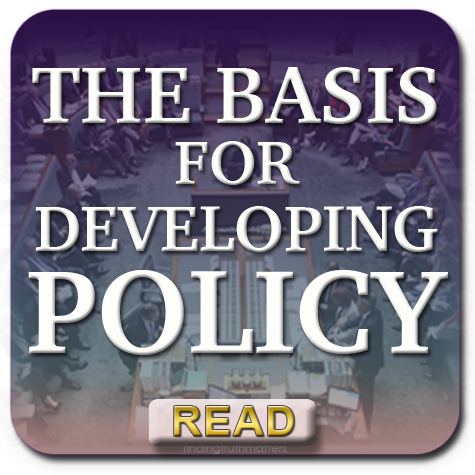
by Dr. Andrew Corbett | Jul 10, 2018 | Philosophy
In her book, Total Truth, Nancy Pearcey tells a typical story occurring among many of today’s Christians. She writes about a young lady who got saved in a contemporary church and continued on with her education then career.
Although she was sincere about her conversion, she found herself living in three worlds. On Sundays she was in the Christian-world. On Mondays she was in her university science class world. On Sundays she would hear all kinds of helpful messages (and occasionally something from the Bible). But on Mondays she would move into her other world where things of the Bible are not only denied- they are ridiculed. Somehow she was able to live in her Christian world on Sundays by telling herself that what she knew to be true from her Monday science world was a different kind of truth from what she was now hearing. Therefore, when she entered her third world she saw no dilemma. That’s why she saw no problem in taking a job as a technician in an Abortion Clinic. She had done what many Christians are now doing. She had compartmentalised truth into different worldviews…

by Dr. Andrew Corbett | Jul 9, 2018 | Apologetics
Is there an intellectual basis for believing in God? Or is being religious just a matter of faith? Christianity invites scrutiny into its claims and its reasons for having faith and these deserve examination. And what’s at stake is the entire credibility of the Bible!
Some people feel that acceptance of God is entirely a matter of faith. But the Scriptures actually claim that it is the truth which is the basis for this faith (Rom. 10:17). Truth is only truth if it is objective truth, that is, it is true for everyone regardless of time or circumstances. Thus, God is either true (and there can be objective proofs to support this), or He is not true and only subjective ‘truth’ can be offered for ‘proof’.

by Dr. Andrew Corbett | Jul 8, 2018 | Public_Policy
Legislators are charged with an office to formulate and review public policy as it potentially becomes legislation. They must consider arguments for and against each piece of potential legislation in order to discharge their office. Classically, there are six filters that must be passed in order for an idea to be considered ‘logical’. These are listed and briefly described below and followed by the three general categories of all legislation which should be used to determine public policy.
1. Distinguish the rhetoric from the reason.
‘Rhetoric’ sounds good. It employs emotive language designed to move a listener. It connects the speaker with their audience by using experiences common to us all…

by Dr. Andrew Corbett | Jul 5, 2018 | Pastoral
LIFE HAS ONE CERTAINTY
We used to say that there are only two certainties in life: death and taxes. But life has only one certainty – we will all die. The death-rate is still 100%! Yet faced with this absolute certainty, too few people think about it and even fewer people take steps to prepare for it and what lies beyond it. And, as it turns out, not even many people who have become Christians have given much thought either! But I have something to say to those who think religion – and Christianity in particular – is (at best) irrelevant. Please give me just three minutes now – and just three seconds later!
WHY DO PEOPLE CONVERT TO CHRISTIANITY?
Christians have sometimes been accused of promoting a pie-in-the-sky message. But the social research reveals a pretty clear message about why people convert to Christianity. Here are the top three reasons why people become Christians-
1. I was raised in a Christian home.
2. I had a religious experience (answered prayer, dream/vision, etc.)
3. I had a need that converting to Christianity met (drug/alcohol deliverance, marriage repair, loneliness, poverty relief, etc.)
Conversely, the top three reasons why people reject Christianity are –
Science has now disproven Christianity.
Too many doubts about the Bible’s claims.
Too many Christians are hypocrites.
…

by Dr. Andrew Corbett | Jun 7, 2018 | Public_Policy
Many of the world’s most prolonged and heinous injustices have historically gone on unchallenged because they were concealed from public view. Only when a professional journalist was able to bring the injustice into public view was the injustice stopped. We think of U.S. forces freeing Nazi prisoners in the Buchenwald and Dachau Concentration camps that shocked not just Americans, but the world when accompanying journalists reported on what they saw. (One wonders whether America would have entered the War earlier if they had seen such brutal photos earlier?)
Who can forget the 1972 Associated Press photographer Nick Ut’s photo of Kim Phuc fleeing naked across a Vietnamese bridge? When the 1973 Pulitzer Committee awarded Nick its prize, it signalled the end America’s involvement in the Vietnam War. These samples illustrate why a free-press is essential to the execution of proper justice, and just how powerful images are.





